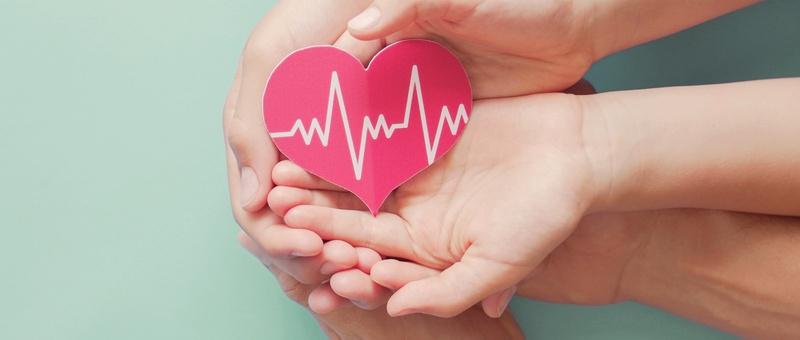
Empowering the next generation: St John Ambulance and the Young Responders campaign
Peer reviewed by Dr Colin Tidy, MRCGPAuthored by Victoria RawOriginally published 11 Sept 2025
- DownloadDownload
- Share
Street violence is a more widespread issue among young people than many might realise. A 2024 report by the Youth Endowment Fund (YEF) highlighted this reality, revealing that almost 50% of teenagers had been a victim or a witness of violence within the past year. To address this, St John Ambulance has developed the Young Responders programme - a free initiative for people aged 11-25, that teaches them street first aid skills they can use in real life.
In this article:
St John Ambulance's Young Responders programmes are thriving in the UK, with active initiatives operating in London, the North East, and West Midlands.
Through a collaboration with the Humber Violence Prevention Partnership (HVPP) and the Office of the Police and Crime Commissioner for Humberside (OPCC), the Young Responders programme has now been rolled out in the Humber region. It will identify those most vulnerable, and deliver practical, scenario-based training grounded in the kinds of situations young people are most likely to encounter.
Project manager Pauline Bartley explains that the programme’s aim is to equip young people not just with the skills, but also the confidence to step up in moments of crisis. It further addresses the mental health impact of street first aid situations and guidance on accessing support when needed.
Continue reading below
The story behind The Young Responders programme
The programme grew from a natural collaboration between St John Ambulance, local councils, and other partner organisations. Following recognition by the OPCC that St John Ambulance could offer young people valuable skills to respond constructively and effectively to street violence and real-life emergencies, the initiative was developed to put that vision into practice.
“The whole point of the Young Responders programme is to give young people vital education,” says Bartley. “It’s about equipping them with life skills and encouraging them to think twice about the choices they make.
“Ultimately, we want to build a network of young people who feel safe, skilled, and confident. With the rise in violent incidents and knife crime, it’s crucial that we help them respond in positive and constructive ways.”
St John Ambulance and the Young Responders Campaign
Personal growth beyond first aid
Through the Young Responders programme, young people can gain a range of practical skills to help them handle emergency situations.
These include:
Managing severe bleeding in an emergency (catastrophic bleed).
Recognising and responding to incidents of alcohol or vape spiking.
Carrying out an initial assessment and providing CPR.
Understanding the emotional impact of first aid situations and knowing where to seek support.
Bartley emphasises that the training isn’t just about acquiring practical skills - it’s also about helping young people pause and consider the consequences of decisions that could negatively affect their future or the lives of others.
“For example, some young people might see spiking a drink or vape as a bit of fun,” she explains. “Unfortunately, this is becoming an issue in schools. We want them to recognise right from wrong so they can make better choices for themselves, and hopefully reflect on past actions and think differently moving forward.”
Bartley adds that the training also helps participants recognise hazardous situations and resist the influence of peer pressure.
“Peer pressure plays a big role in many situations young people face. We want them to start thinking for themselves - for example, that it’s not right to film an argument between two people, because that can make things worse. It’s all about recognising what’s right and wrong and making better decisions.”
Continue reading below
What has the programme achieved so far?
The growing confidence of participants has been a clear measure of the programme’s success, with positive outcomes recorded across every session.
Bartley notes that participants typically begin the Young Responders workshops with confidence levels of around 10%, but by the end, those levels rise to over 90%.
“I think that’s a huge measure of success, because it shows they now know what to do in a moment of need,” she says. “Even if it’s just having the confidence to dial 999 instead of walking away, that’s a big step forward. Many of them have said they’ll think differently in the future and feel ready to support someone using the skills they’ve learned.”
Next steps and getting involved
The aim of the Young Responders programme is to work with a minimum of 1500 young people across the Humberside region.
St John Ambulance hopes to train 30,000 young people around the country in street first aid - bringing their total to nearly 70,000 since the Young Responder's programme began. They are confident the Humberside partnership will be just as successful as the others, and are keen to roll the programme out to additional areas.
“We’re working to build a small army of young people carrying these skills with them,” says Bartley. “Our hope is that, in time, some of those who’ve been through the programme will come back and help deliver it themselves. There’s nothing more powerful than a young person passing on knowledge to their peers and seeing it truly resonate.”
To learn more about the Young Responders programme and explore ways to get involved, visit the St John Ambulance website or contact the team directly at young.responders@sja.org.uk.
Article history
The information on this page is peer reviewed by qualified clinicians.
Next review due: 11 Sept 2028
11 Sept 2025 | Originally published
Authored by:
Victoria RawPeer reviewed by
Dr Colin Tidy, MRCGP

Ask, share, connect.
Browse discussions, ask questions, and share experiences across hundreds of health topics.

Feeling unwell?
Assess your symptoms online for free